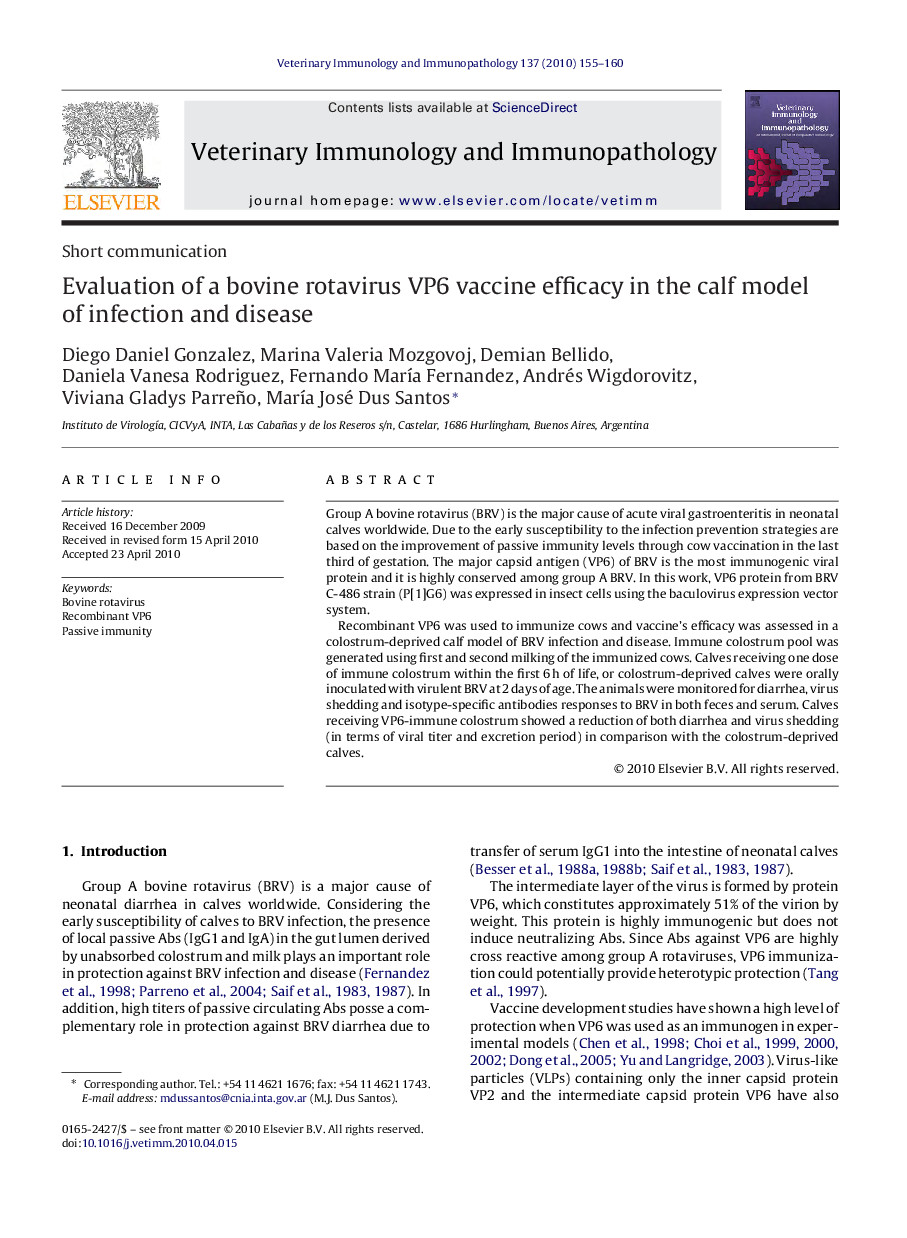| Article ID | Journal | Published Year | Pages | File Type |
|---|---|---|---|---|
| 2462462 | Veterinary Immunology and Immunopathology | 2010 | 6 Pages |
Group A bovine rotavirus (BRV) is the major cause of acute viral gastroenteritis in neonatal calves worldwide. Due to the early susceptibility to the infection prevention strategies are based on the improvement of passive immunity levels through cow vaccination in the last third of gestation. The major capsid antigen (VP6) of BRV is the most immunogenic viral protein and it is highly conserved among group A BRV. In this work, VP6 protein from BRV C-486 strain (P[1]G6) was expressed in insect cells using the baculovirus expression vector system.Recombinant VP6 was used to immunize cows and vaccine's efficacy was assessed in a colostrum-deprived calf model of BRV infection and disease. Immune colostrum pool was generated using first and second milking of the immunized cows. Calves receiving one dose of immune colostrum within the first 6 h of life, or colostrum-deprived calves were orally inoculated with virulent BRV at 2 days of age. The animals were monitored for diarrhea, virus shedding and isotype-specific antibodies responses to BRV in both feces and serum. Calves receiving VP6-immune colostrum showed a reduction of both diarrhea and virus shedding (in terms of viral titer and excretion period) in comparison with the colostrum-deprived calves.
